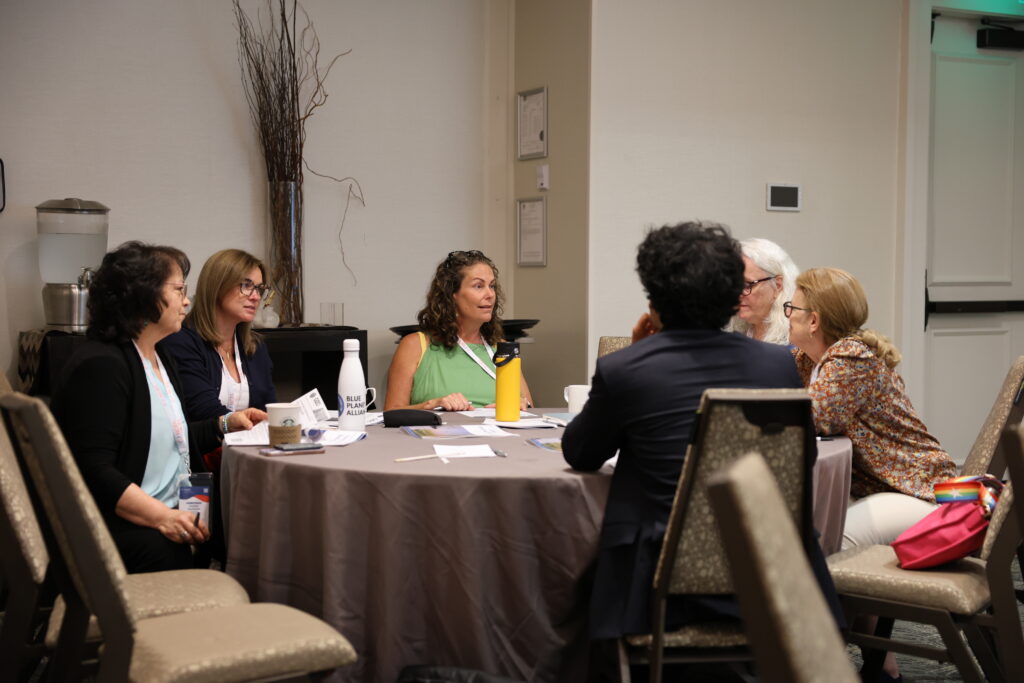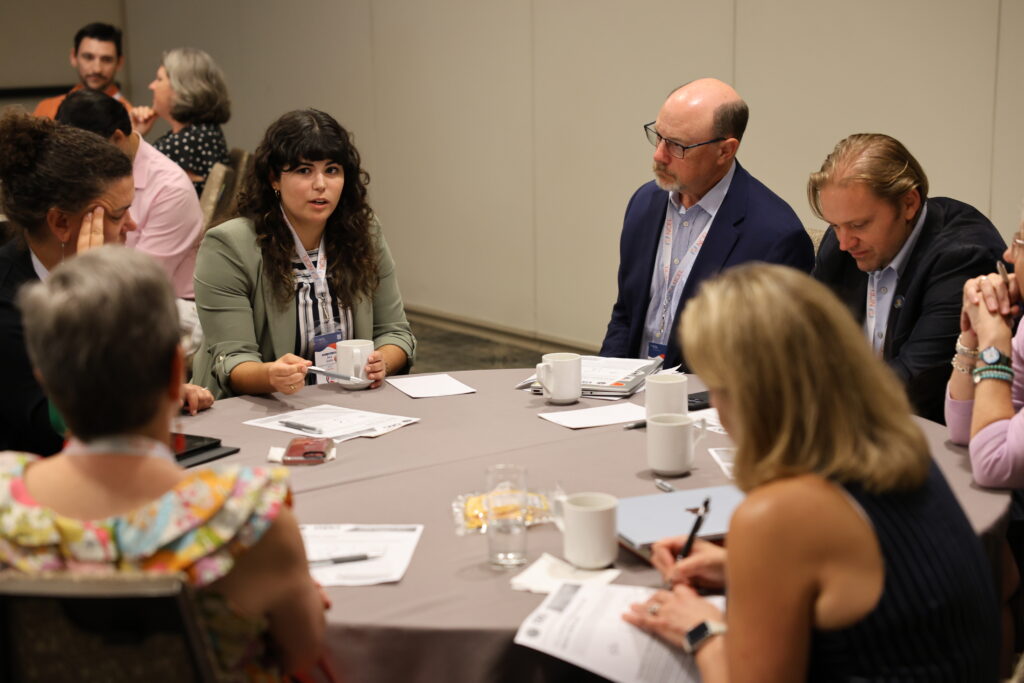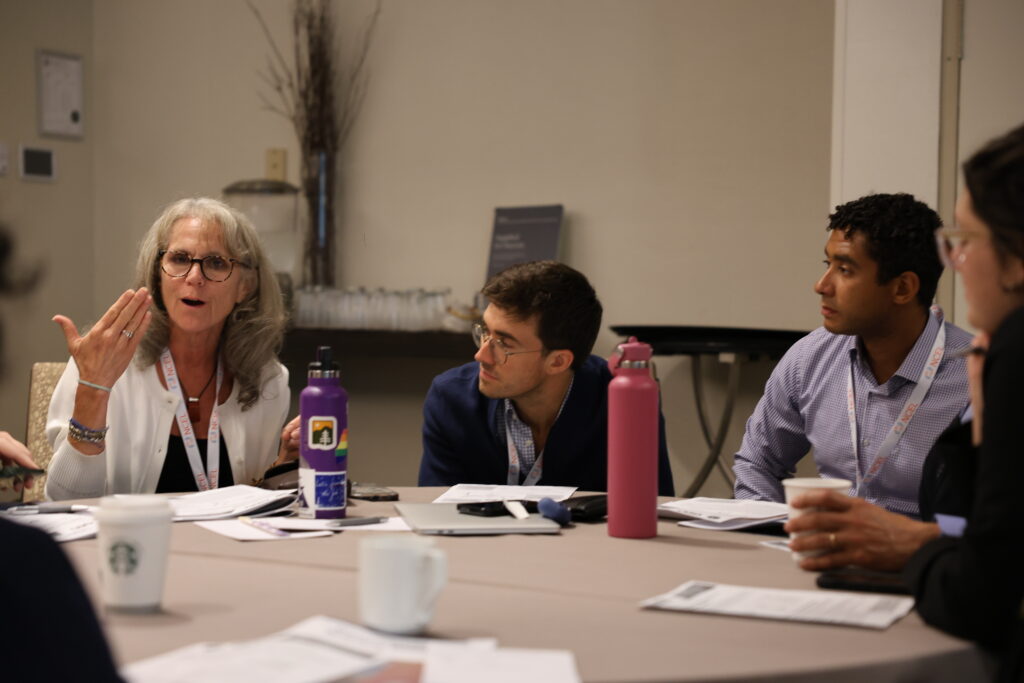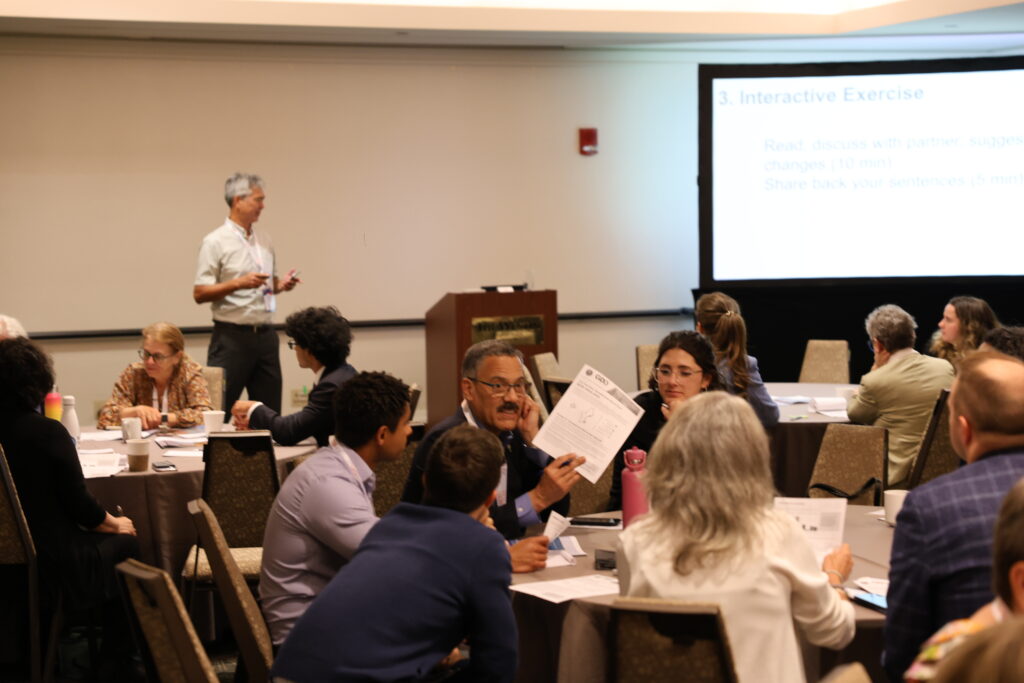
Blog
Convening New England Legislators Around Regional Transmission & Energy Policy: Building the Grid of the Future
September 17, 2025
Overview
On July 31, legislators from all six New England states convened prior to NCEL’s 2025 National Forum for an in-depth, nonpartisan convening focused on a critical tool in achieving energy goals: transmission. This convening brought together over 20 state lawmakers, their staff, and energy experts for an afternoon of learning, collaboration, and strategic visioning around how to build a more affordable, resilient, and future-ready transmission system for New England.
- Why It Matters: State legislators play a pivotal role in modernizing, planning for, and developing transmission infrastructure through regional collaboration to meet future demand. In New England, regional transmission planning is conducted through ISO-New England, which influences states’ transition to renewable energy and other transmission priorities.

Session Highlights
The convening’s various sessions provided a robust primer on the current state of New England’s transmission system and energy needs, policy pathways, and communication strategies for connecting with constituents on this complex topic.
Legislators began the day over a working lunch, introducing themselves and sharing energy priorities from their home states. With a wide range of experiences represented — from urban centers to rural communities — the conversations underscored both the shared challenges and unique opportunities across the region.
The remainder of the afternoon focused on key regional transmission topics, including:
- The State of the Grid in New England & the Role of State Legislators
- Communicating the Benefits of Transmission and Energy Infrastructure
- ISO-NE & the Long-Term Transmission Planning (LTTP) Process

The State of the Grid in New England & the Role of State Legislators
The first session set the stage by answering a foundational question: Why should state legislators care about transmission? Presenters outlined the current state of the electric grid in New England, noting the region’s aging infrastructure, constrained transmission capacity, need to connect to newer energy sources, and increasing electricity costs — among the highest in the nation.
- Themes & Takeaways: Speakers Joe LaRusso (Acadia Center) and Maine State Representative Christopher Kessler emphasized that modernizing the grid is essential not only for reliability and long-term cost control but also for meeting state-level climate and emissions goals. Importantly, they discussed actionable legislative strategies – from improving opportunities for community engagement to removing unnecessary incentives and addressing utility dynamics that drive up costs for consumers.

Communicating the Benefits of Transmission and Energy Infrastructure
Recognizing that grid reform can be a difficult topic to communicate to constituents, this session focused on crafting effective, accessible messages that resonate with the public. Dr. Nathan Phillips (Boston University and ISO New England’s Consumer Liaison Group) led attendees through a workshop highlighting the importance of storytelling, active listening, and meaningful community framing strategies, as well as tips for translating technical information into values-based language.
- Themes & Takeaways: In groups, lawmakers shared their experiences responding to community concerns they found especially challenging to navigate, and provided each other feedback on how to improve their responses in the future. Legislators also practiced rephrasing complex ideas into clear, concise statements and shared ideas for successful community engagement around energy projects. The session highlighted that strong public understanding is essential for building lasting support for grid modernization efforts.

ISO-NE & the Long-Term Transmission Planning (LTTP) Process
The final session provided a deep dive into the regional and interregional processes shaping transmission development in New England. Phelps Turner (Conservation Law Foundation) walked legislators through ISO New England’s Long-Term Transmission Planning (LTTP) process, highlighting how decisions made at the regional level impact state goals — and how state legislators can engage. The session also highlighted policy examples from New England states, including reforms to siting and permitting of transmission lines, regional goals and procurements, and grid-enhancing technologies.
- Themes & Takeaways: Participants discussed the importance of coordinated state action, the challenges of aligning diverse policy priorities, and the role of public interest in shaping grid outcomes. The conversation also explored how legislators can influence regional planning through policy and collaboration with utility regulators and regional transmission organizations.
Looking Ahead
As New England continues to experience high energy costs and increasingly severe weather events, a modern, reliable, and affordable electric grid is crucial. Legislators left the session with practical policy solutions and a clearer understanding of transmission’s role in achieving state energy goals.
Building the grid of the future calls for partnership across state lines, collaboration with federal and regional entities, and engagement with the communities most impacted. With momentum building across the region, legislators are well-positioned to lead in creating a grid that works for all New Englanders — now and into the future.
Legislator Spotlights


